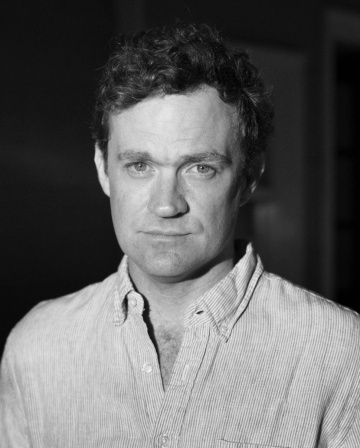Columbia College | Columbia University in the City of New York
Take Five with Patrick Radden Keefe ’99

PHILIP MONTGOMERY
What were you like when you arrived at Columbia?
I arrived with a bit of a sense that I had something to prove. The summer between my junior and senior year of high school, I had visited on a college tour and fallen hard, drawn to New York, but more specifically to the way the campus integrated into the city. I applied to Columbia my senior year and ... didn’t get in. Devastated, I took a year off, stayed in Boston, worked two jobs and reapplied. So by the time I arrived in fall 1995, I felt very fortunate to be there and was eager to make the most of it.
What do you remember about your first-year living situation?
Schapiro Hall, eighth floor. I had a single room, which was a luxury. I decorated it with Christmas lights (as one does) and made a series of close friendships that have endured to this day. Martin Eisner ’99, GSAS’05 and Robert Sherer SEAS’99 were next door, and remain dear friends. Xavier Smith ’99 was down the hall. We had both grown up singing in choirs and we sang together. He sings professionally now (I always knew he would), and he came to the launch party for my most recent book earlier this year.
What class do you most remember and why?
In part because I’d already had a year off before college to blow off steam, I was pretty immersed in my classes from the outset, and I had so many that were memorable and had a decisive impact on the person I became. Deborah Steiner’s Lit Hum section taught me things about reading and finding connections between texts that I had never imagined. (Professor Steiner also had a habit of offering her own alternative translations to works from ... it seemed ... every language, which left me awestruck.) A Simon Schama seminar on narrative history awakened me to the power of seductive prose. And a seminar with the late Fritz Stern [’46, GSAS’53] taught me something about scholarship and writing as a form of moral witness.
Did you have a favorite spot on campus, and what did you like about it?
The East Asian Library was my favorite place to study: the stillness, the high ceilings, the bay windows, those nooks you could spread your books out in and occupy for a few hours.
What, if anything, about your College experience would you do over?
Honestly — and there aren’t many periods of my life that I could say this about — I wouldn’t change a thing.

